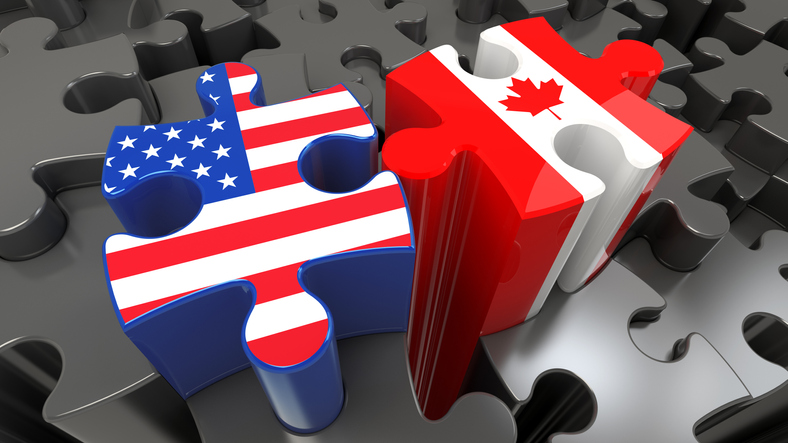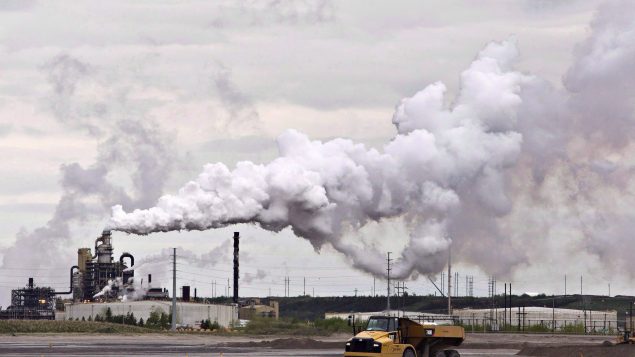Canada’s finance minister will give an economic update this week as the country faces several challenges on the economic front.
“We’re still adjusting to the end of the oil boom,” says Lars Osberg, a professor of economy at Dalhousie University. “Since the end of 2014, oil prices world wide have gone down dramatically and they don’t seem like they’re coming up at all in the near future.
“And in addition to that there’s an increasing discount from the international price for Canadian oil because we can’t get it to market. So, that’s forcing a real re-balancing of the Canadian economy.” He says the $200 billion invested in developing the oilsands is just not paying off. Douglas Porter, chief economist at BMO Nesbitt Burns, told the Globe and Mail newspaper that “the depressed price of Canadian oil could shave between 0.3 and 0.5 percentage points from Canadian GDP over the next year if current conditions persist.

The U.S. is by far Canada’s largest export market. (iStock)
Slowdown in the U.S. is bad for Canada
Another challenge for Canada, he says, is the economic slowdown in the world and in particular the U.S. which is Canada’s biggest export market.
Osberg notes that the governing Liberal Party was elected in 2015 promising to help the middle class which has seen its standard of living stagnate. So, he thinks now is not time to tackle the deficit but rather to maintain a posture of stimulating the economy. And around the world, there seems to be less pressure eliminate deficits.
Pressure to cut taxes for business
Business interests have complained that a large tax cut provided to U.S. companies has put them at a disadvantage and have been lobbying the Canadian government to offer them some relief to compensate. But, Osberg thinks there is not so much pressure for the Canadian government to act because Democrats recently elected to the U.S. House of Representatives may roll back those tax advantages to tackle that country’s enormous deficit which is now at $779 billion and growing.
The finance minister may talk about climate change and government plans to go ahead with a tax on carbon emissions in spite of resistance from several provinces. He may also present plans to support the struggling news sector.

Prof. Lars Osberg describes the many challenges facing Canada as the finance minister prepares to give his economic update.
Listen






For reasons beyond our control, and for an undetermined period of time, our comment section is now closed. However, our social networks remain open to your contributions.